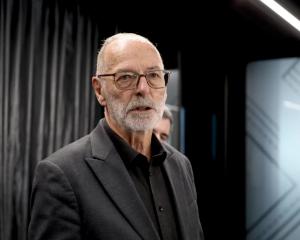
Prime Minister Christopher Luxon says the change in the trading environment has been a "wake-up call" for many countries and there's "huge momentum" from other leaders to stick to the rules-based order.
Luxon said the "real shifts" in geopolitics shouldn't be something to be frightened about and New Zealand should see it as an opportunity as much as a challenge.
Speaking at the end of his week in South East Asia, Luxon pointed out that, more than ever, New Zealand needed to advance its own national interests.
He also pointed to the need to "renew our institutions that govern international rules".
"We need to make sure that we are doing everything we can to advance our own national interests and make New Zealand's as resilient as possible in a world where it's increasingly choppier."
Luxon said the world order that had been in place for the past 70 years had changed.
Given it had eased up its own trading barriers in the late 1980s and early 90s, New Zealand had been agile, moving between markets "at the drop of a hat".
As well, New Zealand was a small country, and had been "smashed around" by global trading conditions more than medium or large-sized countries.
"We've been used to that over the last 30 years," Luxon said. "That's why I say we've got much more nimbleness, agility, flexibility."
That wasn't the case for many other countries, he said, given they were still stuck with their own tariffs, and subsidies and were locked into traditional trading partners.
"They can't move as flexibly as we've been able to. It's been quite a good wake-up call that many, many countries have had to say, 'Listen, we should be working together more than we have been'."
Luxon said his conversations had been about speeding up certain interventions, and pointed to a meeting taking place in Melbourne in three weeks, between trade ministers representing the European Union and the Comprehensive and Progressive Agreement for Trans-Pacific Partnership (CPTPP).
He called this "a start" between two blocks that previously had no connection at all.
"Who knows where it goes, but at least... we're trying to innovate."
He also pointed to the United Nations, saying it hadn't been present or "had any impact", when it came to Ukraine or Gaza, and said he didn't want the World Trade Organisation going down the same route, where it "loses all its influence and impact".
"If you don't keep them on point and you don't keep them relevant for where you sit right here, right now, the danger is what it was set up for five years ago or 10 years ago isn't relevant for today.
"Any organisation needs to be constantly evolving, so that it's actually on point and relevant for the moment that it's in right now."
Otherwise, he said, they would become institutions that don't "have any teeth" and "doesn't deliver in the way that we want it to deliver".
He suggested they required reform, before it was too late.
Ultimately, Luxon said the discussions at the APEC summit on Friday centred around using the forum to do "what we have done historically, which is to invent and incubate and innovate new trading architecture".
Overall, there were "good" and "strong" feelings about working together, and advancing the rules-based system he said.
"Now the real work begins."
Luxon also spoke about his brief meeting with President Xi Jinping on Friday night, which he said was just a "personal conversation", but an opportunity to make sure New Zealand was still on the president's "radar".
Asked whether New Zealand was indeed on China's radar, Luxon emphasised "absolutely", before re-iterating the various engagements he's had with his Chinese counterpart over the past year, as he had done repeatedly this week, "so we're in good shape".
Concluding his trip, Luxon pointed to the five key objectives he had when setting out to the Indo-Pacific - to upgrade New Zealand's relationship with ASEAN, to transcat some business in Malaysia, to upgrade the relationship with South Korea, to make the case for the rules-based trading system, and to build bilateral relationships with the partners and leaders he'd got the chance to know.
In terms of what this actually meant for New Zealand, he acknowledged it had been a "tough time" back home, but in the world of 195 countries and eight billion people, "there is a massive world of opportunity".
"We're living in the most dynamic region of the world.
"We have strong social and democratic institutions, huge amounts of natural resources, talented people, and there should be no excuses for why we can't do exceptionally well for ourselves in the years and the decades ahead."












